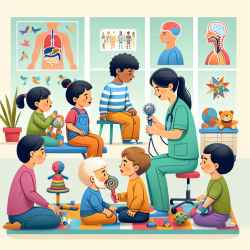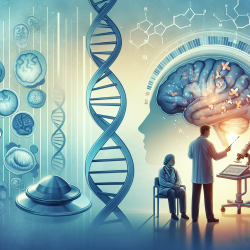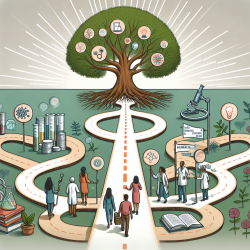Understanding Genetic Influence on Therapy Outcomes
In recent years, the field of therapygenetics has emerged as a promising frontier in personalized medicine, aiming to enhance treatment outcomes for psychological disorders by leveraging genetic data. The study titled Genetics of response to cognitive behavior therapy in adults with major depression: a preliminary report provides valuable insights into how genetic risk scores (GRS) can predict responses to cognitive behavior therapy (CBT) in adults with major depressive disorder (MDD).
The Study at a Glance
The research involved 894 adults diagnosed with MDD who underwent internet-delivered CBT (iCBT). The primary aim was to explore the utility of psychiatric and cognitive trait genetic risk scores in predicting therapy outcomes. The study utilized single-nucleotide polymorphism genotyping arrays to calculate genomic risk scores based on large genetic studies of six phenotypes: major depressive disorder, bipolar disorder, attention-deficit/hyperactivity disorder, autism spectrum disorder, intelligence, and educational attainment.
Key Findings
The analyses revealed a significant interaction effect between the autism spectrum disorder (ASD) genetic risk score and changes in depressive symptoms over the treatment period. Specifically, individuals with a higher ASD genetic load experienced less reduction in depressive symptoms, suggesting that ASD-related genetic risk may hinder the effectiveness of CBT for depression.
Interestingly, the genetic risk scores for other psychiatric and cognitive traits did not show a significant correlation with therapy outcomes, highlighting the complexity of genetic influences on treatment response.
Implications for Practitioners
For practitioners, these findings underscore the importance of considering genetic factors when planning and delivering therapy for depression. Here are some ways to implement these insights:
- Personalized Treatment Plans: By integrating genetic risk assessments into the diagnostic process, therapists can tailor interventions to better suit individual needs, potentially improving therapy outcomes.
- Enhanced Screening: Identifying patients with high ASD genetic risk scores could help in adjusting therapy approaches, such as incorporating strategies that address ASD-related challenges.
- Further Research: The study highlights the need for larger sample sizes and more homogeneous groups to refine our understanding of genetic influences on therapy outcomes.
Future Directions
The preliminary nature of these findings calls for further research to validate and expand upon these results. Future studies should aim to increase sample sizes and explore additional genetic markers that could influence therapy outcomes. Additionally, integrating genetic data with other predictive markers, such as clinical and demographic factors, could enhance the precision of treatment predictions.
As the field of therapygenetics continues to evolve, it holds the promise of revolutionizing how we approach treatment for psychological disorders, ultimately leading to more effective and personalized care for individuals with depression.
To read the original research paper, please follow this link: Genetics of response to cognitive behavior therapy in adults with major depression: a preliminary report.










